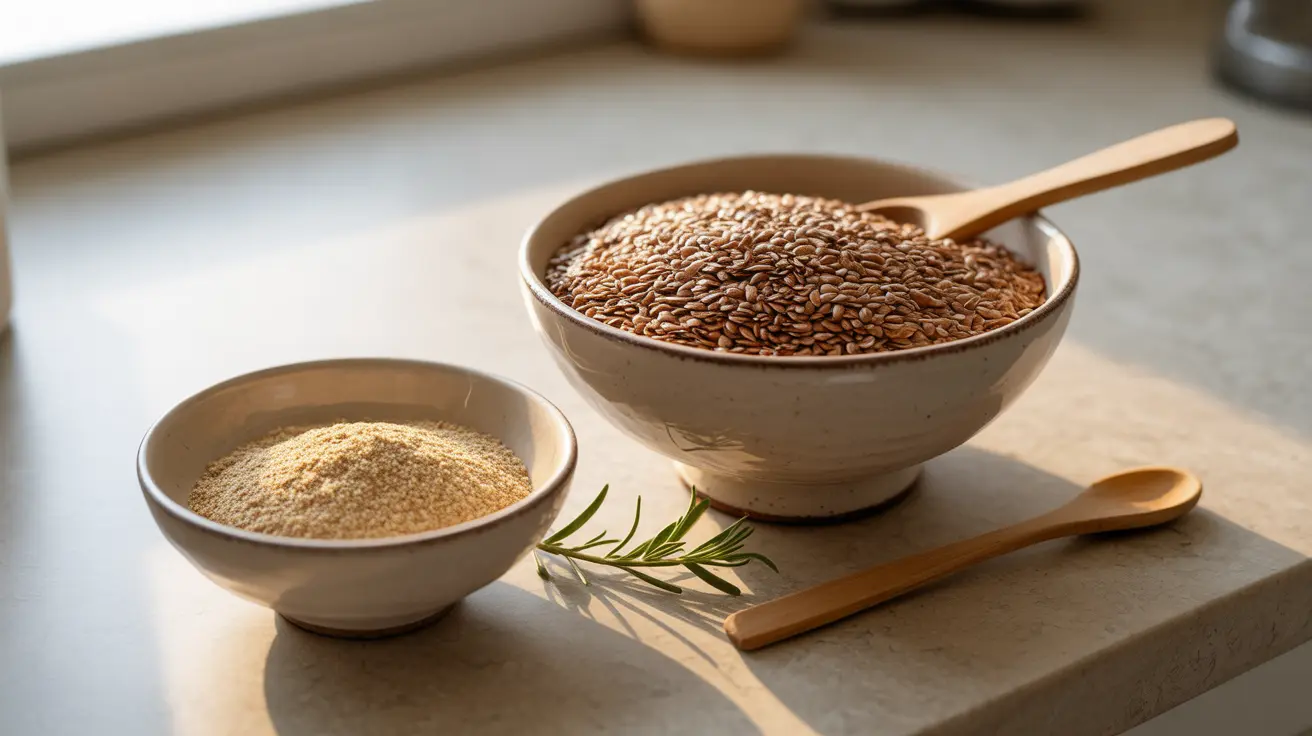Flaxseed has emerged as one of nature's most remarkable superfoods, packed with essential nutrients that can significantly impact your overall health. This tiny seed, also known as linseed, has been cultivated for thousands of years and continues to gain popularity among health-conscious individuals worldwide.
Understanding the benefits, proper consumption methods, and potential considerations of flaxseed can help you make informed decisions about incorporating this nutritional powerhouse into your daily diet. Let's explore everything you need to know about this versatile seed.
Nutritional Profile of Flaxseed
Flaxseed is exceptionally rich in several vital nutrients that contribute to its health-promoting properties:
- Omega-3 fatty acids (particularly alpha-linolenic acid)
- Lignans (plant compounds with antioxidant properties)
- Dietary fiber (both soluble and insoluble)
- Protein
- Vitamins (B1, B6, folate, and vitamin E)
- Minerals (magnesium, phosphorus, and zinc)
Health Benefits of Regular Flaxseed Consumption
Heart Health Support
Flaxseed has shown remarkable potential in supporting cardiovascular health through multiple mechanisms. The omega-3 fatty acids help reduce inflammation, while the fiber content assists in maintaining healthy cholesterol levels.
Digestive Health Enhancement
The high fiber content in flaxseed promotes regular bowel movements and supports a healthy gut microbiome. Both soluble and insoluble fiber work together to maintain optimal digestive function.
Blood Sugar Management
Regular consumption of flaxseed may help regulate blood sugar levels due to its fiber content and unique composition of plant compounds. This makes it particularly beneficial for individuals monitoring their glucose levels.
Proper Consumption Guidelines
Ground vs. Whole Flaxseed
Ground flaxseed is generally recommended over whole seeds for optimal nutrient absorption. The body cannot effectively break down whole flaxseeds, meaning many of the beneficial nutrients may pass through undigested.
Daily Recommended Amount
Most health experts recommend starting with 1-2 tablespoons of ground flaxseed daily, gradually increasing the amount as your body adjusts. It's essential to accompany flaxseed consumption with adequate water intake.
Storage and Preparation Tips
To maintain freshness and prevent rancidity, store ground flaxseed in an airtight container in the refrigerator. Whole flaxseeds can be stored at room temperature for longer periods. Consider grinding only what you need for a week or two at a time.
Potential Considerations and Precautions
While flaxseed is generally safe for most people, certain individuals should exercise caution:
- Those taking blood-thinning medications
- Pregnant or nursing women
- People with hormone-sensitive conditions
- Individuals with digestive disorders
Frequently Asked Questions
What are the main health benefits of consuming flaxseed regularly?
Regular flaxseed consumption offers numerous health benefits, including improved heart health, better digestive function, potential blood sugar regulation, and enhanced omega-3 fatty acid intake. The high content of lignans also provides antioxidant protection.
How much flaxseed should I eat daily for heart and digestive health?
The recommended daily intake is 1-2 tablespoons of ground flaxseed. Start with one tablespoon and gradually increase to avoid digestive discomfort. Always consume with plenty of water.
Is it better to eat whole flaxseed or ground flaxseed for nutrient absorption?
Ground flaxseed is significantly better for nutrient absorption. Whole flaxseeds often pass through the digestive system intact, preventing the body from accessing their beneficial nutrients.
Can flaxseed help lower cholesterol and control blood pressure naturally?
Yes, flaxseed can help manage cholesterol levels and blood pressure through its omega-3 fatty acids, fiber content, and lignans. Regular consumption, as part of a healthy diet, may contribute to improved cardiovascular health.
Are there any risks or side effects associated with eating flaxseed?
While generally safe, potential side effects include digestive issues if consumed without adequate water, interactions with certain medications, and possible hormonal effects. Pregnant women, those on blood thinners, or individuals with specific health conditions should consult healthcare providers before adding flaxseed to their diet.




